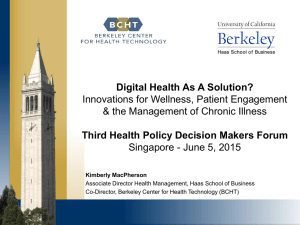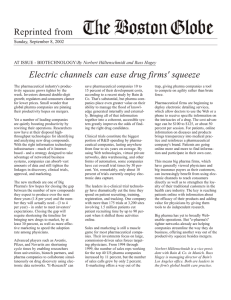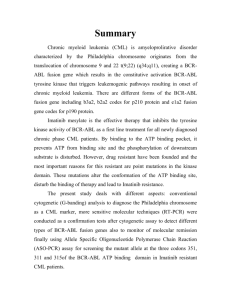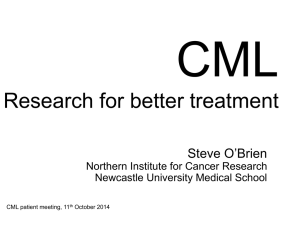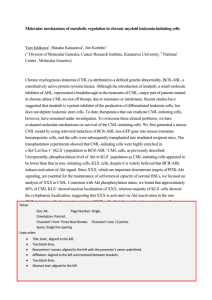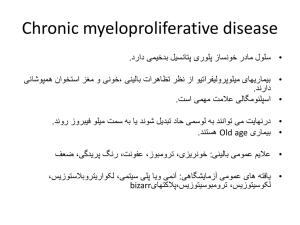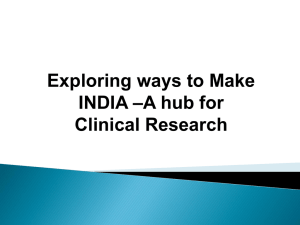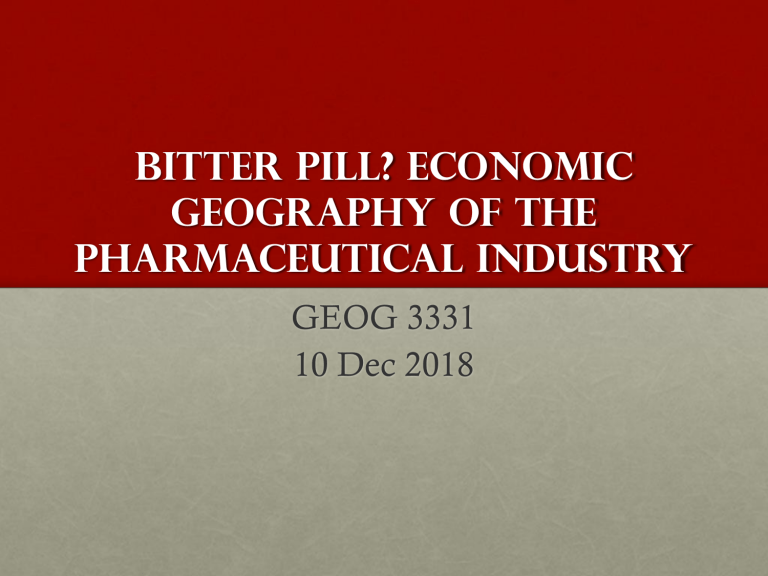
Bitter pill? Economic geography of the pharmaceutical industry GEOG 3331 10 Dec 2018 Martin shkreli • CEO, Turing Pharmaceuticals • Acquired Daraprim- used to treat rare but serious parasitic infections • “Price gouging scandal”: Overnight $13.50 $750 Diagnosing Shkreli • Exception: unchecked human greed • Structural issue: Foundational change in how pharma companies raise capital • What happens when the logic and practices of finance come to motivate the pharmaceutical industry? Logic and practices of finance capital: recap • Singularly privileges short-term shareholder value • Incentivizes speculation • Mode of growth: extractive rather than productive • Share buybacks Drug discovery and development • Fundamental temporal conflict • Drug R&D is a lengthy, unruly process; cannot guarantee quick returns • Finance capital: never sleeps, in a maniacal rush versus “patient” capital FINANCE IN PHARMA • Outsourcing different parts of the R&D and manufacturing processes to smaller companies to reduce infrastructural and operating costs • Growth through acquisitions Money for acquisitions? • Approaching drug pricing with the intent of maximizing revenues in the short-term • Sell more and at high enough revenues to generate cash • Promissory function of drug pricing- promis of future profits • Borrow from VC/HF/IBs against valuation of company (Share buybacksstock prices increasemarket capital increases) Mylan’s epipens • Oversized marker that pops out a short needle, which delivers epinephrine in 3 seconds or less • Epinephrine preferred substance to halt and reverse a severe allergic reaction- anaphylaxis • Lock on large market with inelastic demand; no competition • Creating new markets: public schools and airplanes • Putting on a show for investor audiences: EpiPen windfall enables borrowing money to acquire MEDA Summary • When the logic and practices of finance capital come to motivate the pharmaceutical industry, it exponentially exacerbates the contradictions of health care technologies being capitalist commodities. • Dirty money, “Drug Short”, S1E3, Netflix • But the political and ethical question of access to drugs and other health technologies is already woven into viewing/running these as for-profit businesses; predates financialization of the pharmaceutical industry Questioning drug pricing • Argument against drug price regulationfree market is the source of all innovation • Pharma narrative (crude): Medicine is a business. Its capitalism. And we have seen remarkable advances in science under this system. High drug prices are simply the mode of recouping high expenditures on R&D costs by pharma companies Patent rights • Similar justification for patents • “Temporary” monopoly over production and pricing as reward for innovation and bearing risk • Evergreening Challenging the narrativewho innovates • Majority of transformative drugs were discovered/invented in research labs and universities funded by tax payers; or in collaboration with companies • NIH is the biggest funder of pharmaceutical innovation • Socialization of risk; privatization of profit Challenging the narrativenature of scientific knowledge production • Very rarely a lone scientist or even company begins with search for a drug • Not linear • Happens in fits and starts, often temporally and spatially spread out • Additive/incremental in nature • Involves massive networks of human and nonhuman actors • Many accidents The case of imatinib • Brand name- Gleevec • Popular narrative: Novartis patented Gleevec But did Novartis “invent" it? Coming into being of imatinib • Imatinib molecule that treats Chronic Myeloid Leukemia- rare but vicious form of cancer • Mid 1800s: All living organisms made up of cells; observing and naming of leukemia (weisses blut); cellular theory of human biology human growth a function of increase in cell numbers and/or increase in cell growth • Early 1900s: Crystallization of understanding leukemia as the malignant proliferation of WBCs in the blood • 1920s: Advances in Hematology; pernicious anemia caused by lack of B12 and restoring it can restore blood to normalcy blood an organ whose activity could be turned on/off by molecular switches • Also folic acid critical for forming DNA; DNA critical for cell division (formerly though useless; called “cell stuffing”); blood cells produced by high rate of cell division; therefore lack of folic acid would hamper production of new blood cells in the bone marrow it would churn out half-matured cells, clogging the bloodstream • 1940s: Sidney Farber asks could a malignant bone marrow be shut off by choking nutrient supply? • First taste of success: Farber (pediatric pathologist) and Subbarao (biochemist) stumbled upon an antivitamin that could bind to an enzyme and switch it off, producing temporary remission of leukemia • 1860s-1950s: Understanding genes Functionally- A gene is a unit of inheritance; contains biological traits and info Physically: Genes are carried on chromosomes Chemically: Consist of DNA Genes Proteins, which carry out bulk of cellular functions DNARNAProteins • 1950s-70s: Understanding kinases- A protein that tags other proteins with a phosphate group, unleashing a cascade of signals in cells that dictate cellular activity • 1973: Janet Rowly discovers that all CML cells had an aberration called the Philadelphia chromosome (BcrAbl) • 1980s: Bcr-Abl isolated and injected into mice to confirm that it causes CML • Crystallized understanding that Bcr-Abl a kinase that activated maniacal proliferation of blood cells • 1970s: Lydon et al in Ciba-Geigy were searching for molecules that could selectively switch off “bad” kinases (like Bcr-Abl); after prolonged process of trial and error and redesigning, came up with imatinib • Brian Druker had been studying Bcr-Abl kinase activity; heard of Lydon’s work; approached CG for collaboration; denied; worked out later • Druker conducted trials with imatinib on CML cells in lab, on mice implanted with CML and human bone marrow from CML patients • Despite success, Novartis refused to conduct clinical trials; prolonged lobbying by Druker, then given a small batch of molecules to test on human patients • IMATINIB PATENTED in early 90s • Patent law simplistically surveys the limits of an idea. But it is difficult to locate and isolate credit, labor, or value for creative endeavors in any individual or even set of individuals. Knowledge, creativity and innovation is usually generated between various humans and non humans, i.e. in and through the infrastructure of their connection (Kapczynski 2010) Changing geographies of clinical trials • Our pill-taking life, “mediated by proton-pump inhibitors, serotonin boosters and other drugs that have become permanent additives to many human bloodstreams” is sustained by a complex but largely invisible system of drug testing and drug development (Gormon 2004; Petryna 2011) • Rendered visible in times of crisis- deaths and other “side effects” Human subjects for clinical trials • A subject population available for recruitment and monitoring • Prisons and mental hospitals: readily available for extended time periods; controlled settings; uniform routine; ethically justified as debt to society; “easily” compensated Clinical trials move out of the US by the 70s- Push factors • Thalidomide scandal and Tuskegee syphilis study stricter regulations in general • Attica prison riots; decline in use of prison populations • Pill saturated bodies; too many drug-on-drug interaction; difficult to track the intervention of a single drug Developing countriesPull factors • Economic factors- access to healthcare • Sick but pharmaceutically virgin bodies (treatment naiveté) • Ailing public systems healthcare; state spending low or decreasing • Large pool of trained medical and paramedical persons to act as investigators • Pharma capital needs a differentiated landscapepopulations, economies, laws, and regulations- certain kinds of difference can be leveraged to extract value • But it also needs certain kinds of sameness: TRIPs Thank you
